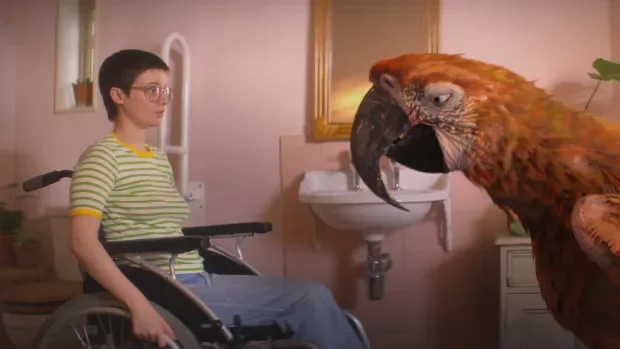Tuesday (2023)
Loading...
I think this movie will really hit hard if you are familiar with or have experience with hospice.
In the last few weeks of my grandma’s life, she was in and out of the hospital and growing increasingly weak. When the hospital started mentioning hospice to us, the way they explained it was: “She will go home, and there will be no more medications or measures to actively fight her condition.”
This was the first time I had heard of hospice—let alone considered a world where we stop ‘trying.’ My family and I were FLOORED. What?! To us, hospice essentially sounded like ‘giving up.’ We immediately opposed it, and to be honest, felt offended and hurt.
Although we were never truly in ‘control’ of my grandma’s condition, when it started deteriorating rapidly, it really felt like control was slipping through our fingers. We faced the impending dread that there was nothing else we could do—but keeping her alive, no matter the cost, continued to give us a false sense of control.
It wasn’t until later that I was able to understand, and I think Tuesday does an incredible job portraying one of the hardest dilemmas many people may face someday: grappling with the lack of control, the suffering, and the death of someone you love.
As my grandma continued to grow weaker, my initial reaction—denial of her quality of life—slowly turned into a realization that we might be doing more harm than good by forcing or extending her life, no matter how much we didn’t want to lose her. Although keeping someone alive as long as possible doesn’t inherently sound selfish, in many situations, it can be—especially near the end of life.
From my experience, I feel like it’s hard to accept—or even conceptualize—this until you’re in that moment, facing the deterioration of your loved one, seeing their pain and suffering so viscerally, and confronting the fact that their soul is leaving their body. At the end of her life, my grandma was physically weak and could hardly eat or drink. We held onto so much hope that she would get better, but after weeks of continued decline, seeing her in the hospital, barely able to eat anything, didn’t feel like living at all. She was calling out in pain at night, unable to speak properly. I didn’t want her to be in that state just so the rest of us could feel comforted by her life.
As a really “literal” person, it’s sometimes hard for me to connect with absurdist films. But with Tuesday, that was actually one of the things I loved most about it. The movie is strange on many levels—a talking, shape-shifting parrot who is the Grim Reaper, for example—but I felt these storytelling devices really helped to bring to life the magnitude of the internal dilemmas and emotions that come with the impending death of a loved one.
Seeing Julia’s character grapple with this on screen—again, in the most absurdist way possible—her visceral struggle and refusal to accept death hit me hard. It was the first time I ever had to grapple with a concept of such magnitude before.
By no means am I saying that hospice is always the right decision, the only decision, or an easy one. Choosing hospice means accepting that you may soon never see your loved one again—and under no circumstances is that a simple decision.
The movie ends with a powerful and comforting message about how the memory of our loved ones is how they continue to be present in the world. I keep this message close to my heart every time I miss my grandma:
“…There is an afterlife. The echo you leave, the legacy, your memory. This, this is Tuesday’s afterlife. How you live it—is how she lives.”
